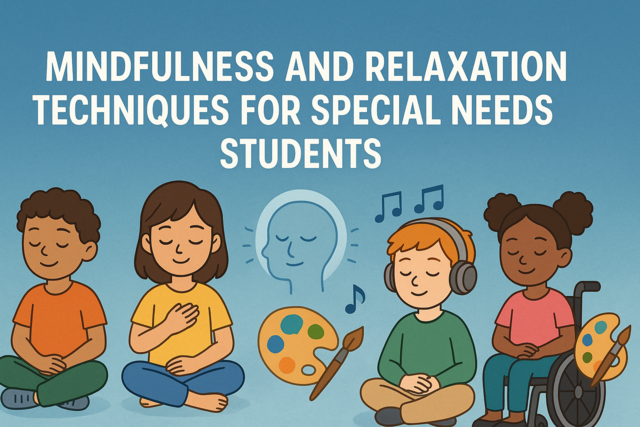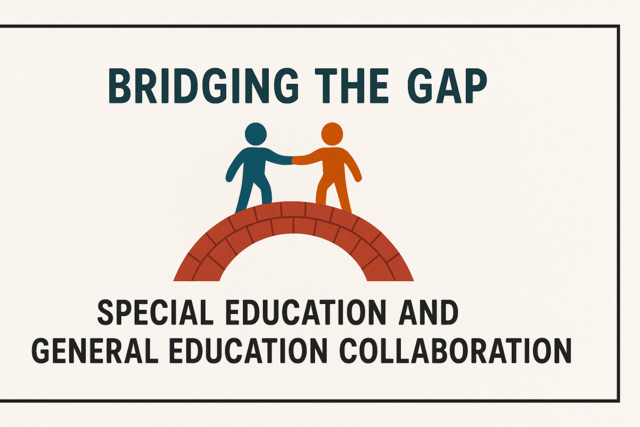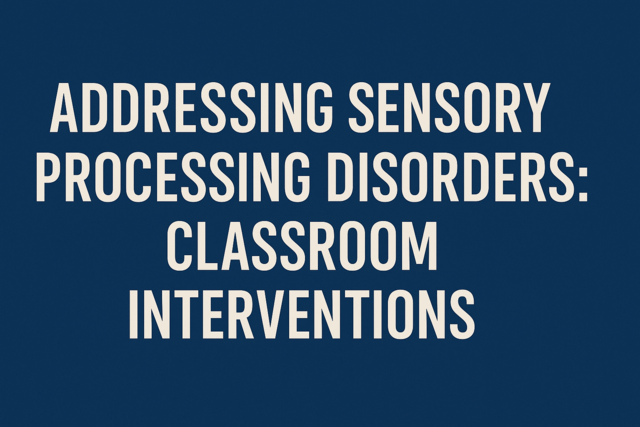Online Class: Self-Regulation Strategies for Students with Disabilities

no certificate
with CEU Certificate*
-
15Lessons
-
22Exams &
Assignments -
3Hours
average time -
0.3CEUs
Course Description
In a world where educational success and personal empowerment are the ultimate goals, for many students with disabilities, the key to unlocking their potential lies in mastering the art of self-regulation. Welcome to "Self-Regulation Strategies for Students with Disabilities"--an enlightening course that redefines boundaries and opens new pathways for students to thrive both in academic settings and beyond.
Imagine a classroom where challenges are no longer daunting obstacles but rather exciting opportunities for growth. This course invites you to a transformative journey, providing the tools to reshape the future of students with disabilities. Picture students who not only navigate their own unique learning paths with confidence but do so with an invigorated sense of autonomy and joy.
Why is this course unlike any other? Because it doesn't just focus on rote learning or traditional approaches. Instead, it delves deep into the heart of what students need: personalized, adaptive techniques that honor their individuality and inspire genuine growth. We're not offering a one-size-fits-all solution. We're guiding each student in harnessing their own power by understanding their personal triggers and stressors--transforming them not into hurdles, but catalysts for success.
By integrating mindfulness and emotional intelligence, students learn to master emotional triggers that once held them back. They emerge not only as scholars but as self-aware, self-regulating individuals poised to handle life's complexities with grace. Have you ever wondered what's possible when students who face significant hurdles uncover their own resilience and calm? In this course, students witness that wondrous transformation.
The magic of our approach lies in the way it harmonizes the internal curriculum of emotions with the external world. We create environments where emotional stability is fostered through mindfulness, a skill cultivating peace in chaos and clarity amidst confusion. This isn't about managing symptoms; it's about embracing a new way of being--a lesson that is essential for lifelong well-being.
Our narrative continues with the exploration of group dynamics and the subtle dance of social cues. Understanding these nuances allows students to not only participate but to thrive in group settings, illuminating their path to stronger, more fulfilling relationships. Unlocking social intelligence isn't just a skill; it's a door to endless possibilities, professionally and socially.
Yet, what truly sets this course apart is the emphasis on executive functioning skills. Often a stumbling block, this challenging area becomes accessible with our expert strategies. By refining skills like working memory and flexible thinking, students achieve newfound independence and academic success, paving their way to a promising future.
The uniqueness of our program lies in its embrace of assistive technology--a tool not just for education, but for liberation. These innovations grant each student autonomy, enriching their educational experiences and confirming their rightful place in learning communities. No longer will any student feel left behind; instead, they'll leap forward with assurance and dignity.
Our dedication doesn't stop at what is; we aim to transform what can be. Through visual aids and adaptive technologies, each lesson is a discovery--a dynamic voyage into personal empowerment, fostering not just understanding, but revolutionizing how students see themselves and their capacities.
Imagine a life where students with disabilities view their uniqueness as strength rather than limitation, where problem-solving becomes second nature and sensory challenges offer new opportunities for growth. This is no mere possibility; it's the promise this course holds.
Join us in this transformative experience, and let our course be the bridge from potential to reality. Transcend traditional education with insights that create lasting change. The knowledge, skills, and resources gained will illuminate paths not only for students today but define a brighter tomorrow.
Enroll today and become part of a learning revolution that promises more than information--it promises transformation. Embrace the power of self-regulation and gift students with the keys to unlocking their full potential. This isn't just an educational journey; it's a life-changing adventure. Welcome to a superior learning experience, where every student conquers challenges, emerges empowered, and realizes their full potential. Welcome to the future of education. Welcome to "Self-Regulation Strategies for Students with Disabilities."
- Completely Online
- Self-Paced
- 6 Months to Complete
- 24/7 Availability
- Start Anytime
- PC & Mac Compatible
- Android & iOS Friendly
- Accredited CEUs

Course Lessons
Lesson 1. Self-Regulation: A Key to Personal and Academic Success
For students with disabilities, self-regulation serves as a vital bridge to overcoming educational and social barriers. Techniques like self-monitoring and positive reinforcement foster resilience and motivation, enabling students to achieve milestones with confidence.Lesson 2. Empowering Disabled Students: Harnessing Triggers and Stressors for Better Self-Regulation
Recognizing environmental and internal triggers in students with disabilities is crucial for developing effective self-regulation to mitigate stress responses. Collaborative techniques, including personalized learning and peer support, cultivate a nurturing environment and enhance educational success.Lesson 3. Mastering Emotional Triggers for Student Success
Understanding emotional triggers and self-regulation equips students with disabilities with tools for academic success and social fulfillment. Tailored strategies and mindfulness practices empower them to navigate emotional challenges, enhancing well-being and resilience.Lesson 4. Unlocking Emotional Stability: The Power of Mindfulness for Students with Disabilities
Mindfulness helps students with ADHD or autism manage attention and social challenges by fostering real-time awareness of thoughts and emotions. Regular practice can enhance executive functions, facilitate smoother social interactions, and promote self-compassion.Lesson 5. Understanding Roles and Social Cues in Group Settings
Understanding group dynamics is crucial for students with disabilities, enabling them to identify roles and enhance social interactions. By leveraging non-verbal cues and resolving conflicts constructively, students improve communication and foster a cooperative learning environment.Lesson 6. Unpacking Executive Functioning: Strategies for Student Success
Working memory, flexible thinking, and self-control are key components of executive functioning that affect goal-directed behavior and task completion. Students with disabilities may struggle with these skills, but targeted interventions can help enhance their academic performance and independence.Lesson 7. Harnessing Your Learning Style for Success
Understanding diverse learning styles empowers students, especially those with disabilities, to customize their study methods and manage time effectively. By embracing their unique preferences, like visual, auditory, or kinesthetic strategies, they can optimize academic success and reduce stress.Lesson 8. Empowering Through Images: The Transformative Role of Visual Supports in Education
The use of technology enhances visual supports by providing customizable and interactive tools that cater to diverse learning styles and needs. Such innovations reinforce the effectiveness of visual aids in supporting students with disabilities, offering new avenues for independence and self-regulation.Lesson 9. Adapting Goals: Understanding Individual Challenges and Needs
Collaboration between educators, therapists, and families is essential in crafting meaningful, personalized goal-setting frameworks for students with disabilities. This network of support ensures that goals remain realistic and reflect the student's unique needs while aligning with educational standards.Lesson 10. Resilience Through Problem-Solving for Students with Disabilities
For students with disabilities, developing problem-solving skills is critical for resilience, enabling them to break down and tackle unique challenges effectively. By encouraging diverse perspectives and self-regulation strategies, these students learn to navigate complex problems with adaptability and creativity.Lesson 11. Sensory Processing: Understanding and Strategies
The lesson explores the intricate process of sensory interaction in the brain, affecting how we perceive daily experiences, especially for students with sensory sensitivities. By adapting educational environments to individual needs, it fosters inclusive learning that turns sensory challenges into opportunities for growth.Lesson 12. Adaptive Reinforcement Strategies in Education
Token economies and social reinforcement emphasize consistency and human connection in behavior management, supporting pattern recognition in students. These systems foster a collaborative classroom culture where achievements are celebrated and goals visualized, driving positive behavior development.Lesson 13. Empowering Students with Collaborative Goal Setting
Dynamic and flexible goal-setting processes, supported by milestones and regular progress evaluations, allow students to adapt strategies and discover effective solutions. This adaptability nurtures perseverance and important problem-solving skills in a supportive environment.Lesson 14. Fostering Independence and Focus: Assistive Technology for Today's Learners
Incorporating assistive technology, such as text-to-speech and speech-to-text applications, bridges accessibility gaps for students with reading and writing challenges, promoting a more inclusive educational experience. Teachers can leverage these tools to tailor instruction, supporting students' unique learning needs and advancing equity.Lesson 15. Self-Regulation in Education: A Transformative Tool
Technology plays a transformative role in enhancing self-regulation, with digital tools providing structured reminders and immersive learning environments. These tools offer new ways for students to practice and receive feedback on self-regulation techniques.
Learning Outcomes
- Define self-regulation and describe its essential components, including self-monitoring, self-evaluation, and self-reinforcement, for academic and social achievement.
- Identify strategies for enhancing self-regulation skills in students with disabilities, focusing on emotional regulation, impulse control, and cognitive flexibility to improve learning outcomes.
- Demonstrate the ability to develop and implement a personalized plan of self-regulation strategies to effectively manage identified triggers and stressors, using methods such as mindfulness or structured routines.
- Recognize and describe at least three common environmental triggers and explain how these can impact emotional and behavioral responses in students with disabilities.
- Engage in mindfulness practices to enhance self-awareness, identify emotional responses, and apply learned techniques to maintain emotional balance during challenging situations.
- Identify and describe specific emotional triggers that impact personal behavior and develop at least two coping strategies to manage these triggers effectively.
- Describe the impact of mindfulness practices on reducing anxiety and improving focus among students with disabilities.
- Identify and demonstrate two mindfulness techniques that enhance emotional regulation in students with disabilities.
- Demonstrate the use of self-regulation strategies to manage emotional responses during group interactions, enhancing social skills and interpersonal effectiveness.
- Describe the ability to identify and interpret non-verbal communication cues such as body language, eye contact, and facial expressions in group settings.
- Demonstrate the use of assistive technologies to overcome organizational barriers, enhancing academic performance for students with disabilities.
- Identify and create a personalized study environment that minimizes distractions for learners with sensory processing challenges.
- Recognize and describe different learning styles (visual, auditory, kinesthetic) and their impact on time management strategies for students with disabilities.
- Demonstrate mastery of lesson content at levels of 70% or higher.
Additional Course Information

- Document Your Lifelong Learning Achievements
- Earn an Official Certificate Documenting Course Hours and CEUs
- Verify Your Certificate with a Unique Serial Number Online
- View and Share Your Certificate Online or Download/Print as PDF
- Display Your Certificate on Your Resume and Promote Your Achievements Using Social Media

Choose Your Subscription Plan
No Certificate / No CEUs
This course only
| Includes certificate | X |
| Includes CEUs | X |
| Self-paced |

|
| Instructor support |

|
| Time to complete | 6 months |
| No. of courses | 1 course |
Certificate & CEUs
This course only
| Includes certificate |

|
| Includes CEUs |

|
| Self-paced |

|
| Instructor support |

|
| Time to complete | 6 months |
| No. of courses | 1 course |
Certificates & CEUs
Includes all 600+ courses
| Includes certificate |

|
| Includes CEUs |

|
| Self-paced |

|
| Instructor support |

|
| Time to complete | 12 Months |
| No. of courses | 600+ |
Certificates & CEUs
Includes all 600+ courses
| Includes certificate |

|
| Includes CEUs |

|
| Self-paced |

|
| Instructor support |

|
| Time to complete | 24 Months |
| No. of courses | 600+ |
Related Courses
-
 6 hours
0.6 CEUs
Cryptids: Creatures of Folklore and Reality
+ More Info
6 hours
0.6 CEUs
Cryptids: Creatures of Folklore and Reality
+ More Info
-
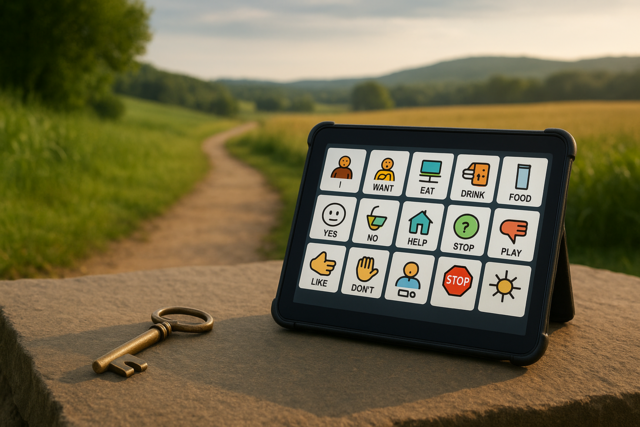 6 hours
0.6 CEUs
Assistive Communication Devices: Maximizing Potential
+ More Info
6 hours
0.6 CEUs
Assistive Communication Devices: Maximizing Potential
+ More Info
-
 3 hours
0.3 CEUs
Bermuda Triangle Mysteries
+ More Info
3 hours
0.3 CEUs
Bermuda Triangle Mysteries
+ More Info
-
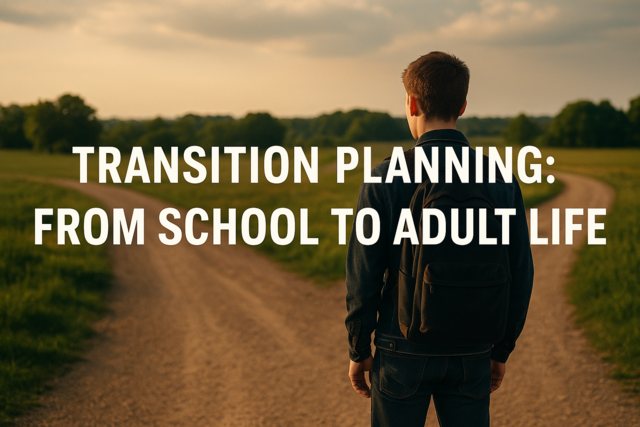 6 hours
0.6 CEUs
Transition Planning: From School to Adult Life
+ More Info
6 hours
0.6 CEUs
Transition Planning: From School to Adult Life
+ More Info
-
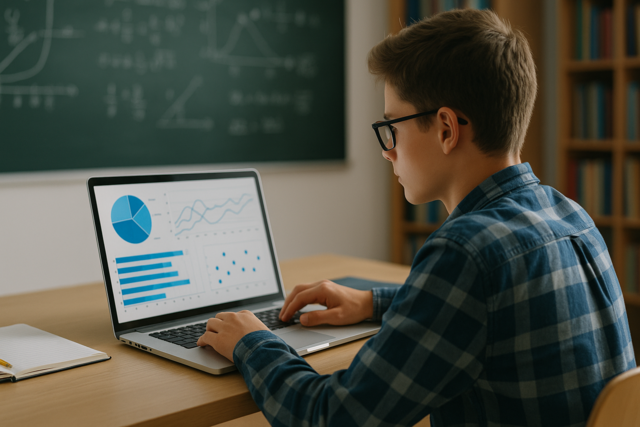 4 hours
0.4 CEUs
The Use of Analytics in Education
+ More Info
4 hours
0.4 CEUs
The Use of Analytics in Education
+ More Info
-
 5 hours
0.5 CEUs
Understanding and Reducing Bias
+ More Info
5 hours
0.5 CEUs
Understanding and Reducing Bias
+ More Info
-
 7 hours
0.7 CEUs
Family Engagement and Support Strategies in Special Education
+ More Info
7 hours
0.7 CEUs
Family Engagement and Support Strategies in Special Education
+ More Info
-
 6 hours
0.6 CEUs
Basic Gardening and Plant Care
+ More Info
6 hours
0.6 CEUs
Basic Gardening and Plant Care
+ More Info
-
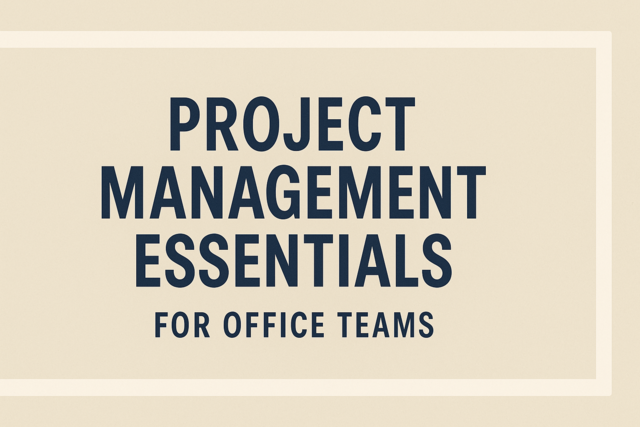 7 hours
0.7 CEUs
Project Management Essentials for Office Teams
+ More Info
7 hours
0.7 CEUs
Project Management Essentials for Office Teams
+ More Info
-
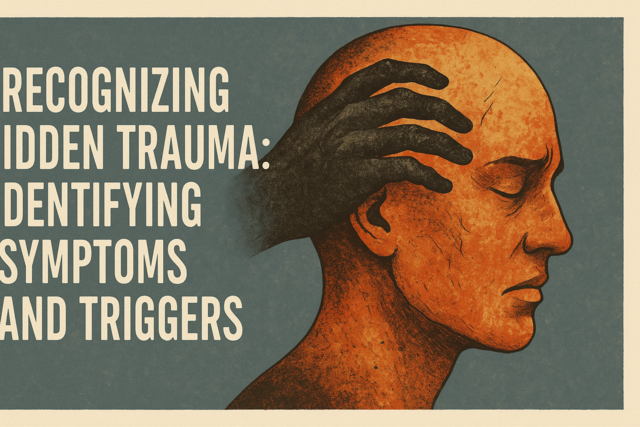 4 hours
0.4 CEUs
Recognizing Hidden Trauma: Identifying Symptoms and Triggers
+ More Info
4 hours
0.4 CEUs
Recognizing Hidden Trauma: Identifying Symptoms and Triggers
+ More Info
-
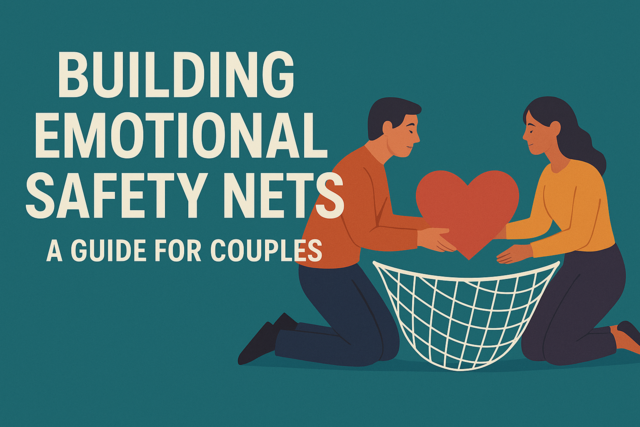 5 hours
0.5 CEUs
Building Emotional Safety Nets: A Guide for Couples
+ More Info
5 hours
0.5 CEUs
Building Emotional Safety Nets: A Guide for Couples
+ More Info
-
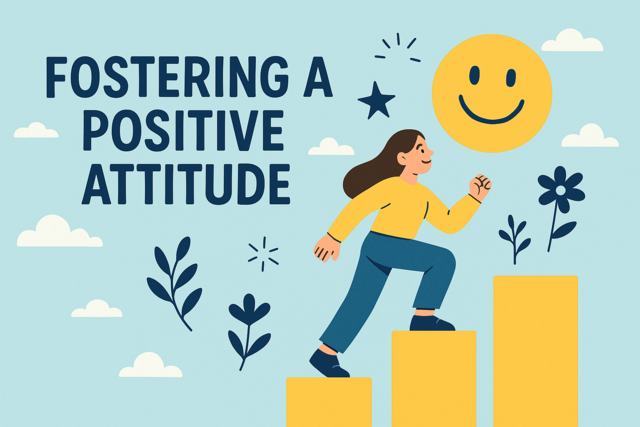 5 hours
0.5 CEUs
Fostering a Positive Attitude
+ More Info
5 hours
0.5 CEUs
Fostering a Positive Attitude
+ More Info
-
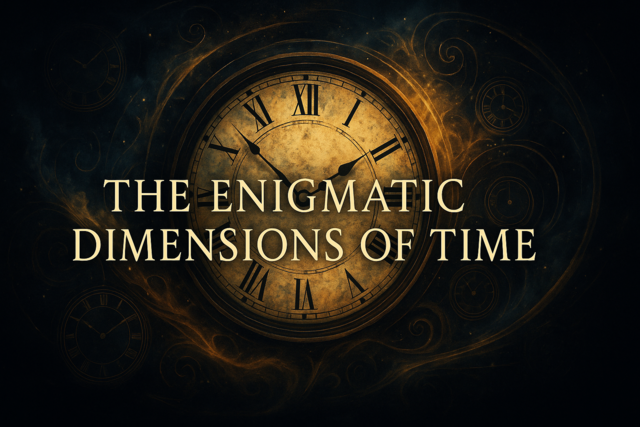 5 hours
0.5 CEUs
The Enigmatic Dimensions of Time
+ More Info
5 hours
0.5 CEUs
The Enigmatic Dimensions of Time
+ More Info
-
 6 hours
0.6 CEUs
The Healing Power of Crystals
+ More Info
6 hours
0.6 CEUs
The Healing Power of Crystals
+ More Info
-
 3 hours
0.3 CEUs
High-Street to Haute: The Journey to Becoming Fashionable
+ More Info
3 hours
0.3 CEUs
High-Street to Haute: The Journey to Becoming Fashionable
+ More Info
-
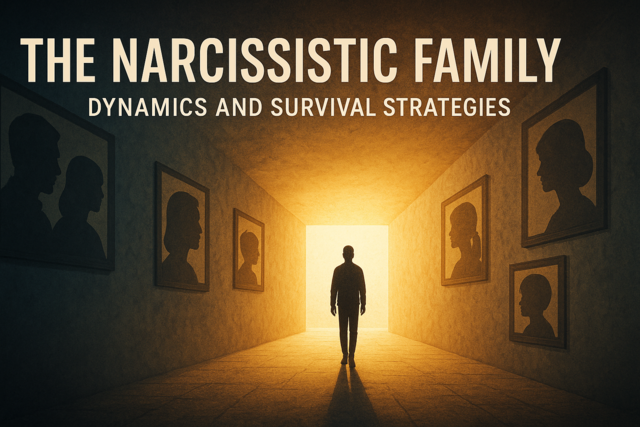 5 hours
0.5 CEUs
The Narcissistic Family: Dynamics and Survival Strategies
+ More Info
5 hours
0.5 CEUs
The Narcissistic Family: Dynamics and Survival Strategies
+ More Info
-
 4 hours
0.4 CEUs
Beyond Words: The Silent Language of Relationships
+ More Info
4 hours
0.4 CEUs
Beyond Words: The Silent Language of Relationships
+ More Info
-
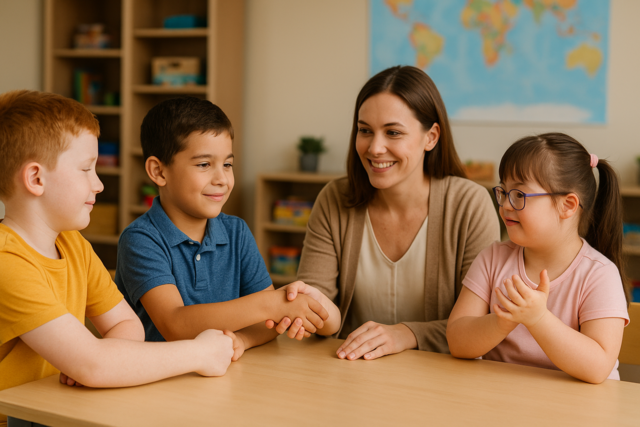 5 hours
0.5 CEUs
Promoting Social Skills in Special Education
+ More Info
5 hours
0.5 CEUs
Promoting Social Skills in Special Education
+ More Info
-
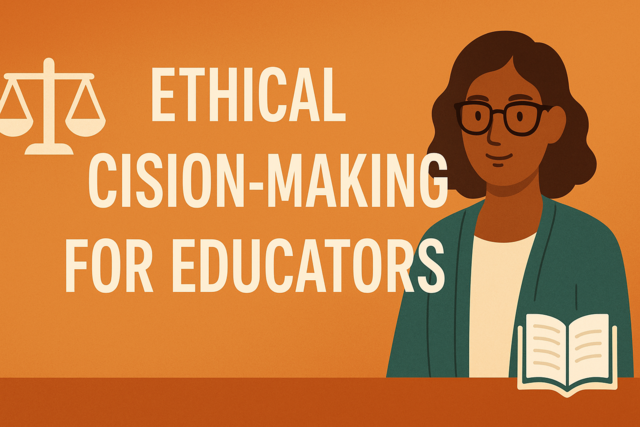 7 hours
0.7 CEUs
Ethical Decision-Making for Educators
+ More Info
7 hours
0.7 CEUs
Ethical Decision-Making for Educators
+ More Info
-
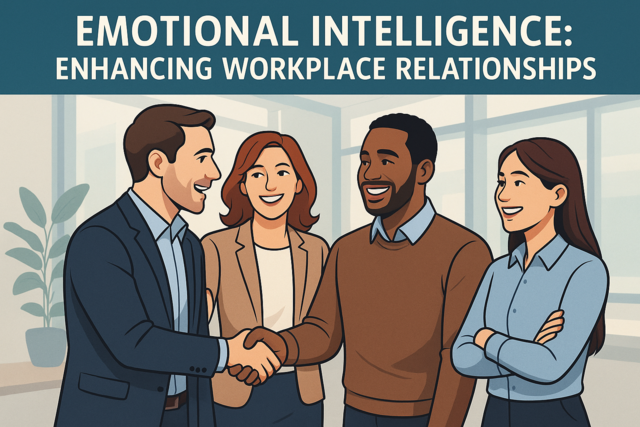 7 hours
0.7 CEUs
Emotional Intelligence: Enhancing Workplace Relationships
+ More Info
7 hours
0.7 CEUs
Emotional Intelligence: Enhancing Workplace Relationships
+ More Info
-
 4 hours
0.4 CEUs
Narcissistic Loops: Breaking the Cycle of Self-Absorption
+ More Info
4 hours
0.4 CEUs
Narcissistic Loops: Breaking the Cycle of Self-Absorption
+ More Info
-
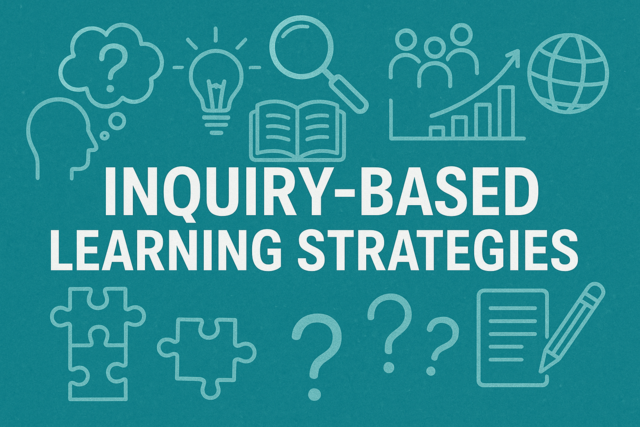 5 hours
0.5 CEUs
Inquiry-Based Learning Strategies
+ More Info
5 hours
0.5 CEUs
Inquiry-Based Learning Strategies
+ More Info
-
 7 hours
0.7 CEUs
Healthy Lifestyle and Fitness Habits
+ More Info
7 hours
0.7 CEUs
Healthy Lifestyle and Fitness Habits
+ More Info
-
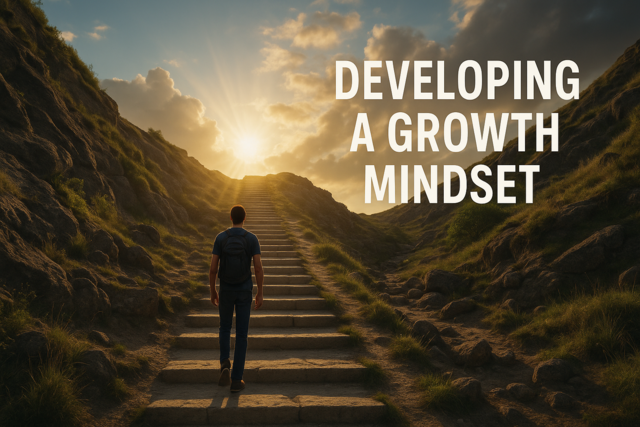 5 hours
0.5 CEUs
Developing a Growth Mindset
+ More Info
5 hours
0.5 CEUs
Developing a Growth Mindset
+ More Info
-
 6 hours
0.6 CEUs
Flawless Finish: Understanding Details in Luxury Fashion
+ More Info
6 hours
0.6 CEUs
Flawless Finish: Understanding Details in Luxury Fashion
+ More Info
-
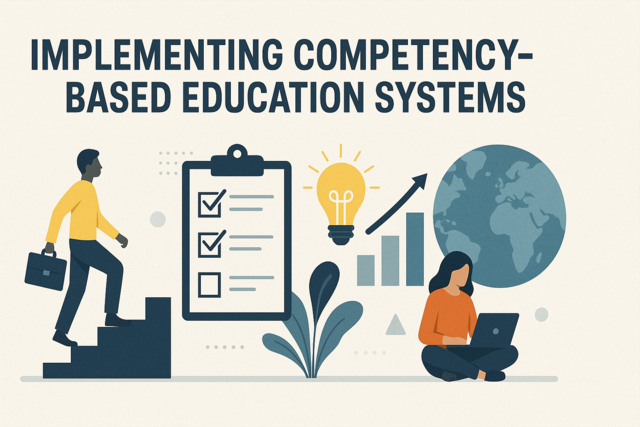 4 hours
0.4 CEUs
Implementing Competency-Based Education Systems
+ More Info
4 hours
0.4 CEUs
Implementing Competency-Based Education Systems
+ More Info
-
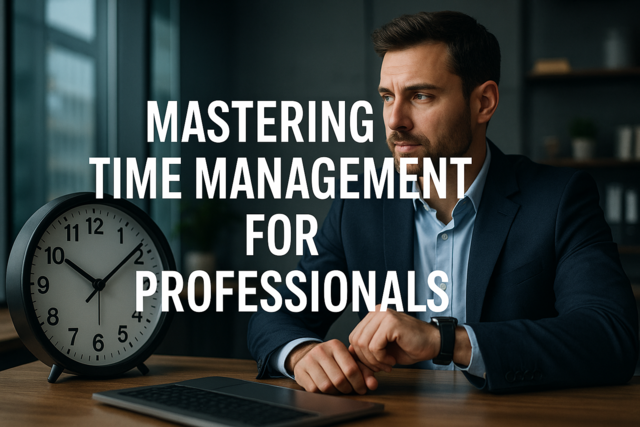 7 hours
0.7 CEUs
Mastering Time Management for Professionals
+ More Info
7 hours
0.7 CEUs
Mastering Time Management for Professionals
+ More Info
-
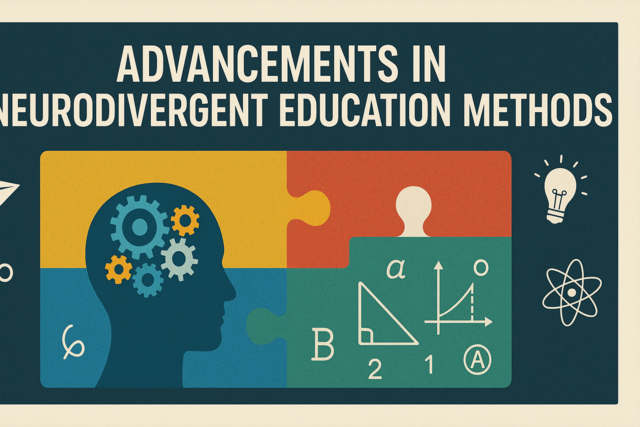 3 hours
0.3 CEUs
Advancements in Neurodivergent Education Methods
+ More Info
3 hours
0.3 CEUs
Advancements in Neurodivergent Education Methods
+ More Info
-
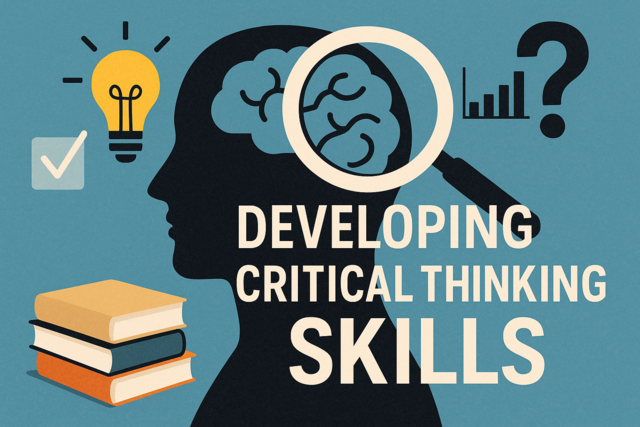 5 hours
0.5 CEUs
Developing Critical Thinking Skills
+ More Info
5 hours
0.5 CEUs
Developing Critical Thinking Skills
+ More Info
-
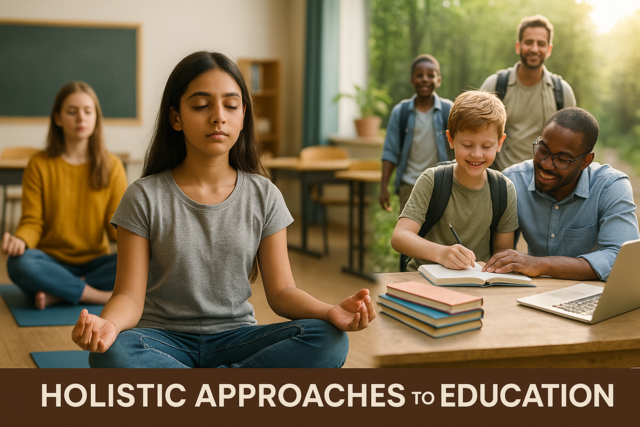 3 hours
0.3 CEUs
Holistic Approaches to Education
+ More Info
3 hours
0.3 CEUs
Holistic Approaches to Education
+ More Info
-
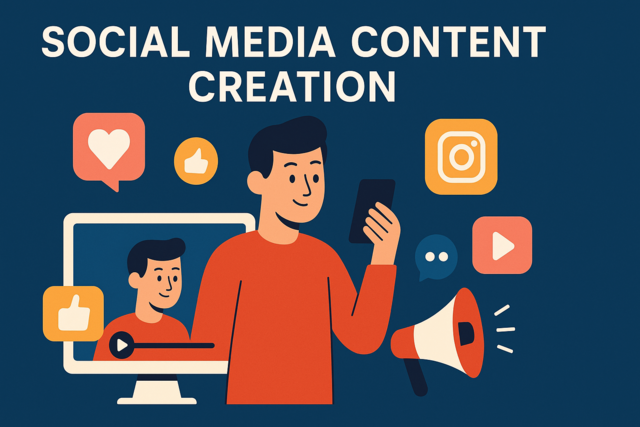 3 hours
0.3 CEUs
Social Media Content Creation
+ More Info
3 hours
0.3 CEUs
Social Media Content Creation
+ More Info
-
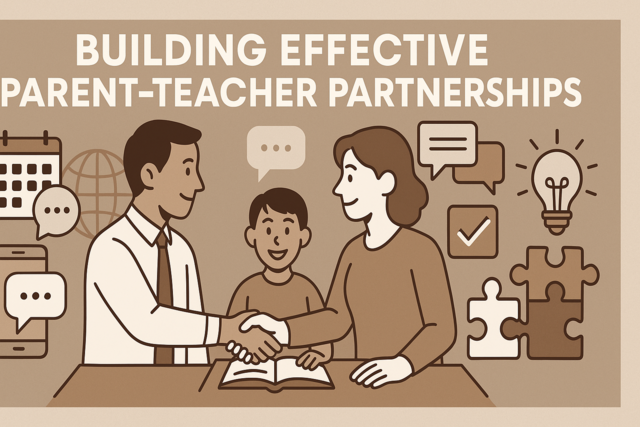 6 hours
0.6 CEUs
Building Effective Parent-Teacher Partnerships
+ More Info
6 hours
0.6 CEUs
Building Effective Parent-Teacher Partnerships
+ More Info
-
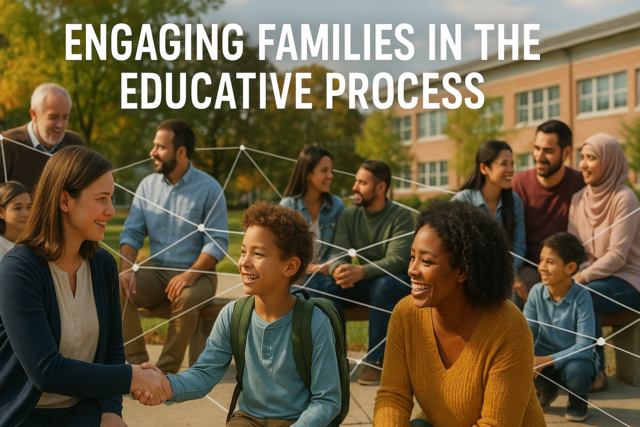 5 hours
0.5 CEUs
Engaging Families in the Educative Process
+ More Info
5 hours
0.5 CEUs
Engaging Families in the Educative Process
+ More Info
-
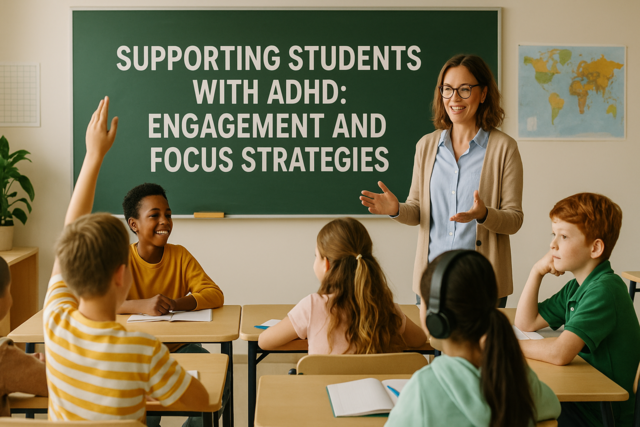 4 hours
0.4 CEUs
Supporting Students with ADHD: Engagement and Focus Strategies
+ More Info
4 hours
0.4 CEUs
Supporting Students with ADHD: Engagement and Focus Strategies
+ More Info
-
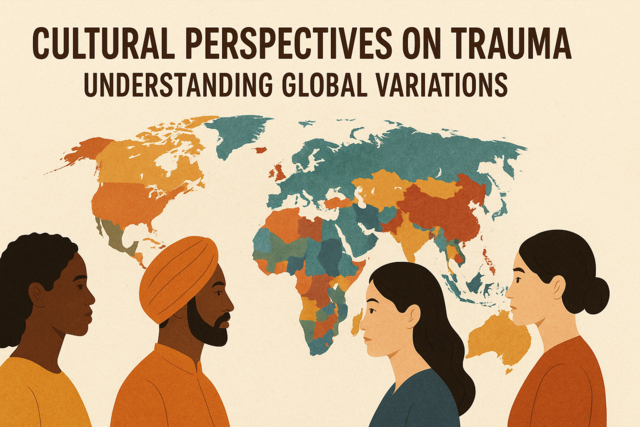 7 hours
0.7 CEUs
Cultural Perspectives on Trauma: Understanding Global Variations
+ More Info
7 hours
0.7 CEUs
Cultural Perspectives on Trauma: Understanding Global Variations
+ More Info
-
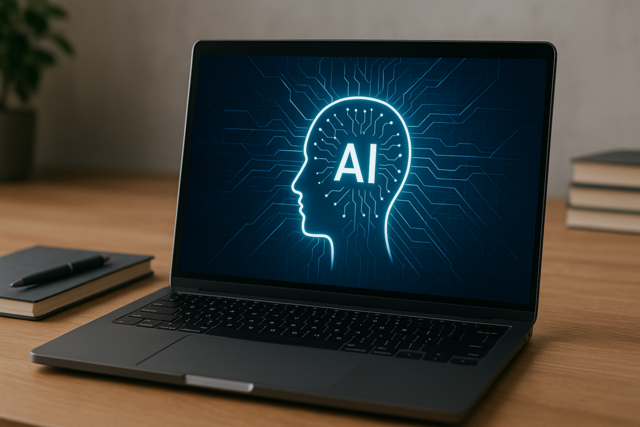 4 hours
0.4 CEUs
Understanding Artificial Intelligence
+ More Info
4 hours
0.4 CEUs
Understanding Artificial Intelligence
+ More Info
-
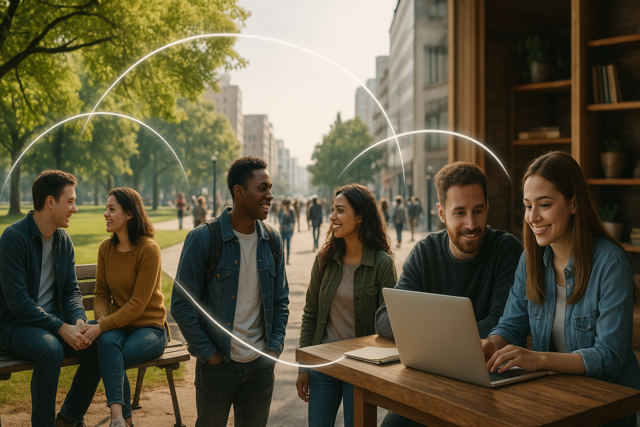 6 hours
0.6 CEUs
The Influence Index: How Environment Shapes Relationships
+ More Info
6 hours
0.6 CEUs
The Influence Index: How Environment Shapes Relationships
+ More Info
-
 4 hours
0.4 CEUs
Assertiveness Training for Professionals
+ More Info
4 hours
0.4 CEUs
Assertiveness Training for Professionals
+ More Info
-
 6 hours
0.6 CEUs
Timeless Aesthetics: Navigating Luxury Brand Evolution
+ More Info
6 hours
0.6 CEUs
Timeless Aesthetics: Navigating Luxury Brand Evolution
+ More Info


